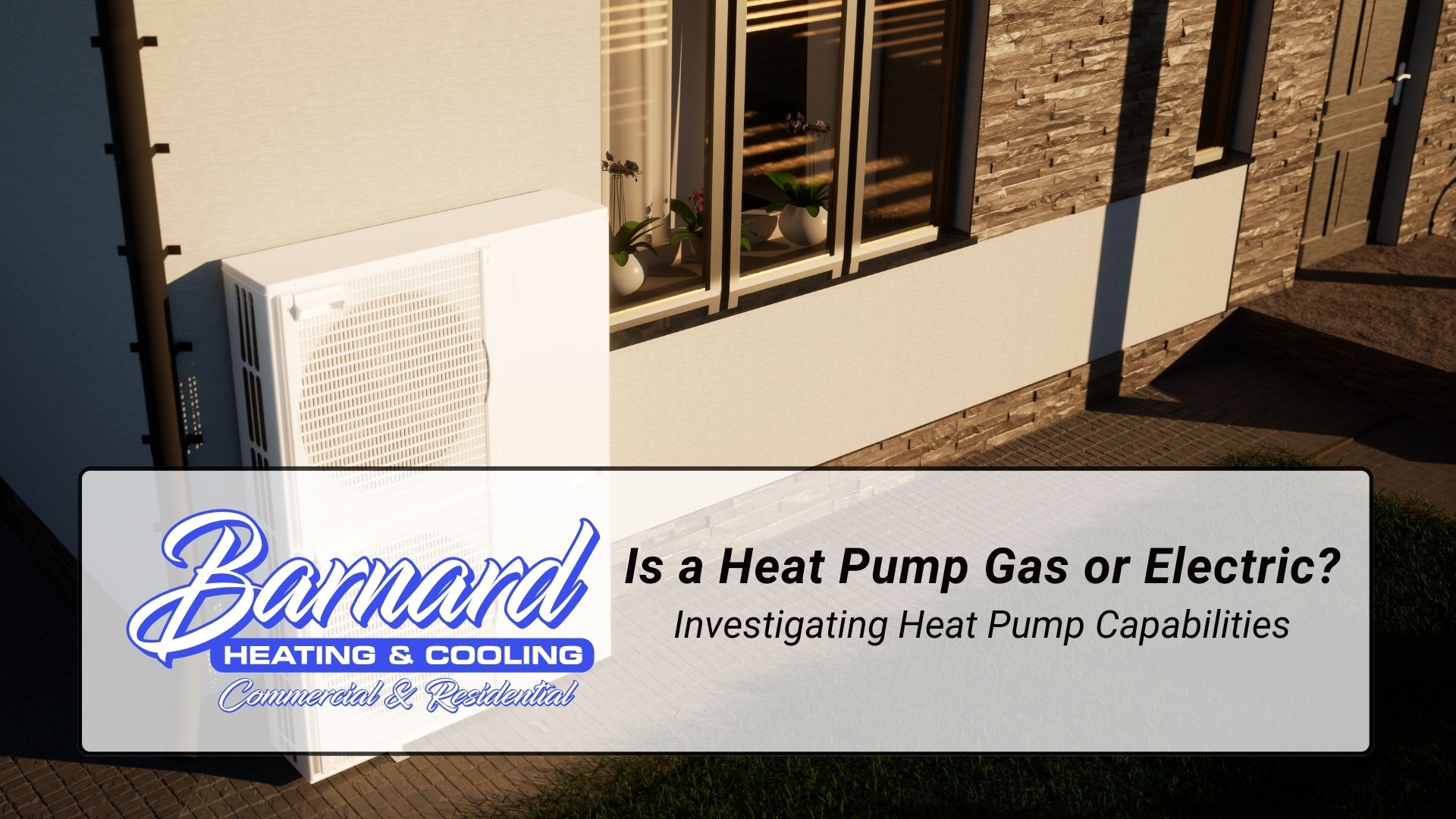If you're embarking on the journey to select the right heating system for your home or business, you may feel like you find more questions than answers. Is a heat pump gas or electric? What does this mean for your energy consumption and comfort? Let’s dive into the dynamic world of heat pumps, a technology increasingly embraced for its efficiency and versatility. Read on to learn more.
Heat Pump Capabilities
Heat pumps are versatile HVAC systems known for their dual functionality of heating and cooling. They efficiently transfer heat energy between the indoors and outdoors, offering cost-effective climate control. This energy-efficient technology lowers utility bills and reduces environmental impact, making it a sustainable choice.
In addition to heating and cooling, heat pumps provide benefits such as zoned temperature control, dehumidification, air filtration, and compatibility with smart home technology. They often use eco-friendly refrigerants and can include backup heating elements for extreme cold conditions. These capabilities make heat pumps a compelling option for those seeking streamlined, adaptable, and environmentally conscious heating and cooling solutions.
Is a Heat Pump Gas or Electric? And Other FAQs
Heat pumps can run on either gas or electric power, depending on the type of heat pump. An air-source heat pump usually runs on electricity, using a compressor and refrigerant to transfer heat. On the other hand, a geothermal heat pump can use either electricity or gas as its energy source, as it relies on the natural heat stored in the earth to provide heating and cooling. In general, electric-powered heat pumps are more efficient and environmentally friendly than gas-powered ones, but they may not be suitable for all climates and situations.
For further insights and answers to commonly asked questions about heat pumps, check out our answers to popular questions.
Is a Mini Split a Heat Pump?
Yes, mini-split systems are a form of heat pumps. They offer both heating and cooling but without the need for extensive ductwork, making them ideal for room additions, retrofits, and properties where traditional HVAC systems aren’t feasible. Essentially, a mini-split is a compact, ductless version of a heat pump, ideal for targeted climate control.
Is a Heat Pump Worth It?
Determining the value of a heat pump hinges on factors like local climate, electricity rates, and your specific heating and cooling needs. In milder climates, heat pumps can be more cost-effective than traditional heating and cooling methods. According to the U.S. Department of Energy, heat pumps can deliver up to three times more heat than the energy they consume.
How Long Do Heat Pumps Last?
The lifespan of a heat pump usually ranges between 10 to 15 years, though some may last up to 20 years with diligent maintenance. The quality of installation, brand, and regular servicing influences longevity. Regular maintenance is key to maximizing your heat pump's lifespan and efficiency.
What Is a Good SEER Rating for a Heat Pump?
SEER (Seasonal Energy Efficiency Ratio) rates the cooling efficiency of heat pumps. The higher the SEER rating, the more efficient the unit. As of 2023, the U.S. minimum standard SEER rating is 14, but high-efficiency models can exceed 20 SEER. ENERGY STAR® certified heat pumps are a solid reference for high-efficiency models.
What Are the Disadvantages of a Heat Pump?
Despite their energy-saving properties, heat pumps have drawbacks. They can be less effective in very cold climates, possibly needing supplemental heating. Initial installation can be costlier than traditional systems, and year-round operation may necessitate more frequent maintenance.
Heat Pump Experts Have the Answers You Need
Heat pumps, predominantly electric, offer a flexible and efficient solution for heating and cooling, especially in moderate climates. Weighing their advantages and drawbacks is crucial in determining if they suit your specific needs. For comprehensive advice tailored to your situation, consulting a professional HVAC technician is advisable.
If you have questions about your heat pump you need answered, give us a call today.
